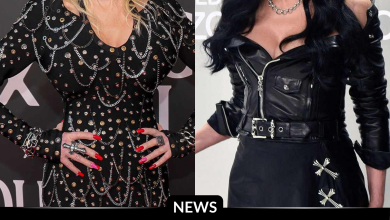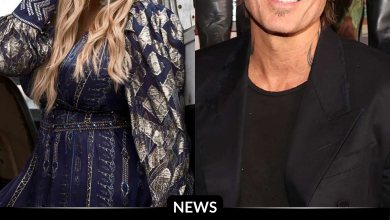Adele’s Priceless Catalog: Why She Rejected a $50 Million Buyout for Her ‘21’ Album Rights
OPINION: This article may contain commentary which reflects the author's opinion.
Adele’s 21 album is more than just a commercial success—it’s a cultural milestone and a lifelong asset. Reports have surfaced suggesting that the global superstar turned down a $50 million offer to sell the rights to this iconic album, highlighting her steadfast commitment to ownership over quick financial gain. Despite rumors that her partner Rich Paul advised otherwise, Adele’s decision underscores a powerful stance on artistic control and legacy.
The Unmatched Value of 21
Released in 2011, 21 remains one of the best-selling albums of the 21st century, with over 31 million copies sold worldwide. It’s certified 17x Platinum in the United States alone, making it the highest-certified album released this century. Hits like “Rolling in the Deep” and “Someone Like You” continue to generate substantial revenue through sales, streaming, licensing, and sync deals.
Owning the master recordings gives Adele—or her company—the lion’s share of income from this enduring catalog. This ownership transforms the album from a one-time payout into a perpetual revenue stream, a valuable asset that appreciates over time rather than depreciates.
The Power of Ownership Over Short-Term Gains
While the exact details of the $50 million offer remain unconfirmed by official sources, the principle behind Adele’s rejection aligns with her well-documented approach to her career. For artists who own their masters, selling rights for a lump sum—even one as large as $50 million—often means forfeiting future earnings that could far exceed that amount over time.
Adele’s decision reflects a broader trend among top artists who prioritize control and long-term legacy over immediate payouts. This strategy not only preserves financial benefits but also ensures creative autonomy and influence over how their music is used.
Adele’s Priorities Beyond Money
Rumors about Rich Paul’s advice regarding the offer have not been substantiated, but Adele’s actions speak clearly. In late 2024, she reportedly turned down a $200 million deal to extend her world tour, choosing instead to prioritize family time with her son and partner. Earlier in her career, she famously withheld new music from streaming platforms to protect the value of physical and digital sales, demonstrating her willingness to challenge industry norms.
These choices highlight a consistent philosophy: Adele values her personal life and artistic control over financial windfalls. Her refusal to sell the rights to 21 fits this pattern perfectly—her catalog isn’t just an asset; it’s a priceless part of her legacy.
Conclusion
Whether or not the $50 million figure is exact, Adele’s rejection of such an offer reinforces the importance of ownership in today’s music industry. 21 is far more than an album; it’s a lifetime of work, emotion, and influence. For Adele, keeping control over this “priceless piece” is a testament to her business acumen and dedication to her art and family, proving that some things are truly beyond price.



